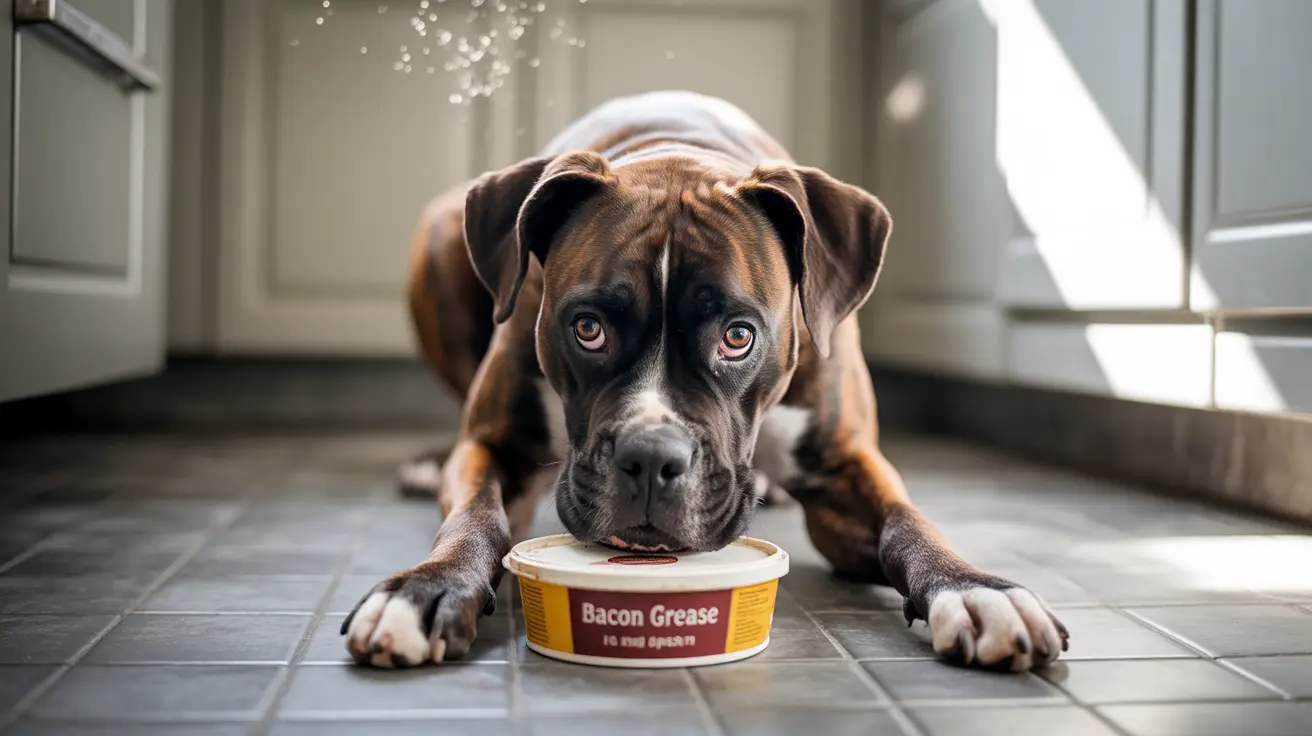Many dog owners wonder about adding bacon grease to their pet's food, whether to enhance flavor or encourage picky eaters. However, veterinary experts strongly advise against feeding bacon grease to dogs due to significant health risks and potential complications.
In this comprehensive guide, we'll explore why bacon grease can be dangerous for dogs, what risks it poses, and what safer alternatives are available for enhancing your dog's meals.
Understanding the Dangers of Bacon Grease for Dogs
Bacon grease presents several serious health concerns for dogs, primarily due to its extremely high fat and sodium content. A single tablespoon of bacon grease contains more fat than most dogs should consume in an entire day, making it a potentially dangerous addition to their diet.
High Fat Content and Pancreatitis Risk
Dogs process fats differently than humans, and their digestive systems aren't equipped to handle concentrated sources of fat like bacon grease. The excessive fat content can trigger acute pancreatitis, a serious and potentially life-threatening condition characterized by inflammation of the pancreas.
- Severe abdominal pain
- Repeated vomiting
- Loss of appetite
- Lethargy
- Diarrhea
Sodium and Preservative Concerns
Commercial bacon contains extremely high levels of sodium and preservatives, including nitrates and nitrites. These additives can lead to:
- Severe dehydration
- Sodium ion poisoning
- Kidney stress
- Blood pressure issues
Immediate Health Impacts
Even small amounts of bacon grease can cause immediate digestive upset in dogs. Common short-term effects include:
- Vomiting
- Diarrhea
- Stomach pain
- Excessive thirst
- Lethargy
Long-term Health Consequences
Regular exposure to bacon grease can lead to serious chronic health issues:
- Obesity
- Chronic pancreatitis
- Heart disease
- Diabetes
- Joint problems
- Reduced life expectancy
What to Do If Your Dog Eats Bacon Grease
If your dog accidentally consumes bacon grease, take these steps:
- Monitor their behavior closely
- Ensure fresh water is always available
- Watch for signs of distress or illness
- Contact your veterinarian if symptoms develop
- Keep a record of timing and amount consumed
Safe Alternatives for Enhancing Dog Food
Instead of bacon grease, consider these veterinarian-approved options:
- Small amounts of lean, cooked meats
- Fish oil supplements
- Coconut oil (in moderation)
- Commercial dog food toppers
- Low-sodium bone broth
Frequently Asked Questions
Is it safe to give my dog bacon grease as a treat or food additive?
No, it's not safe to give dogs bacon grease as a treat or food additive. The high fat and sodium content can cause serious health problems, including pancreatitis and sodium poisoning.
What are the health risks if my dog accidentally eats bacon grease?
Immediate risks include digestive upset, vomiting, and diarrhea. More serious risks include pancreatitis, sodium poisoning, and severe dehydration. The severity depends on the amount consumed and your dog's size and health status.
How can I prevent my dog from eating bacon grease if they are attracted to it?
Store bacon grease in sealed containers out of reach, clean cooking surfaces thoroughly, and dispose of grease properly. Never leave pans or containers with bacon grease where dogs can access them.
What are safer alternatives to bacon grease for adding flavor or calories to dog food?
Safe alternatives include fish oil, coconut oil, low-sodium bone broth, or commercial dog food toppers designed specifically for pets. Always consult your veterinarian before adding supplements to your dog's diet.
What should I do if my dog eats bacon grease and shows signs of illness?
Contact your veterinarian immediately if your dog shows signs of illness after consuming bacon grease. Common warning signs include repeated vomiting, diarrhea, lethargy, or abdominal pain.
Conclusion
While bacon grease might seem like a tempting treat for dogs, the health risks far outweigh any potential benefits. Focus instead on providing your pet with a balanced, veterinarian-approved diet and safe, healthy treats designed specifically for dogs.






